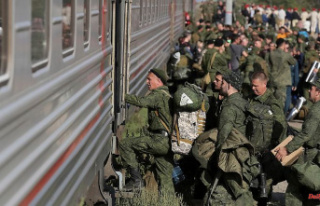35 percent of those surveyed in the RTL/ntv trend barometer bought heaters or stoves to keep their homes warm in the event of a gas shortage. The vast majority of Germans are already suffering from the high energy prices.
The looming energy crisis and the high rate of inflation are currently taking up a lot of public space. A very large majority (87 percent) of those surveyed in the RTL/ntv trend barometer feel particularly burdened by the higher prices for electricity, gas or heating oil. Hardly fewer (78 percent) suffer greatly from the higher prices for everyday groceries.
Two-thirds (68 percent) state that the higher prices for petrol and diesel have a particularly negative impact on their household. Half of Germans (51 percent) also see very negative effects from losses in financial investments and the reduction in their own assets. 45 percent see the increased costs for purchases in the household, and 41 percent see the higher prices for services, for example for craftsmen, as a particular burden for their own household.
Around a third of those surveyed stated that the higher prices in the catering trade (33 percent) and the higher prices for clothing and shoes (29 percent) are particularly burdensome for their own households.
There are differences between the individual age groups on this question. The higher prices for groceries, fuel, household items, services, restaurants, clothing and shoes are less often perceived as a burden by the over-60s than by the middle-aged and younger age groups.
The higher purchase costs in the household are more often than average for the younger people under 45, the higher prices for clothing and shoes most often for the 30 to 44 year olds, who are in the middle of working life and often have children to look after.
The higher prices are perceived as a similar burden in almost all areas of life by recipients of higher and lower incomes. Respondents with higher incomes (of 4,000 euros and more) only mentioned the loss of financial investments and the reduction in assets more often as a particularly negative development for their household than those on lower incomes.
58 percent of Germans believe that after the complete stop of gas supplies from Russia in the coming autumn and winter months, Germany will be able to obtain enough gas from other sources to meet the needs of private households and the economy. 36 percent - mostly East Germans (51 percent) and AfD supporters (60 percent) - fear that this will not be possible, so that the gas supply will have to be temporarily interrupted.
The assessment of German citizens regarding the security of the power supply in the coming months is even more optimistic. 66 percent believe that the power supply in Germany will always be secure in autumn and winter. 31 percent - again most likely the East Germans and the supporters of the AfD - believe that there will be temporary shutdowns of the power supply.
A good third of Germans (35 percent) say they have taken precautions in the event that the energy supply for their own household is interrupted, for example by buying electric heaters, a wood stove or fireplace or similar. 65 percent - regardless of whether they heat their household with gas or not - have not yet taken any precautions against a possible interruption in the energy supply.
As at the beginning of September, only a minority of Germans are in favor of shutting down the three nuclear power plants still in operation by the end of the year (10 percent) or for the temporary continued operation of two of the three nuclear power plants until the end of March 2023 (18 percent ). Instead, the vast majority of 68 percent of Germans are still in favor of using all three nuclear power plants to generate electricity until 2024.
Of the supporters of the Greens, 42 percent are in favor of continuing to operate all three nuclear power plants and a little less (35 percent) for the provisional continued operation of two nuclear power plants.
46 percent of Germans expect that Habeck will overcome the current energy crisis. Almost as many (47 percent) don't believe that. A majority of supporters of the SPD (65 percent) and the Greens (85 percent) believe that Habeck will overcome the energy crisis, while supporters of the FDP are divided on this issue. A majority of East Germans (64 percent) as well as supporters of the CDU/CSU (58 percent) and the AfD (82 percent) fear that Habeck will not be able to overcome the energy crisis.
The data was collected by the market and opinion research institute Forsa on behalf of RTL Germany on September 29 and 30, 2022. Database: 1008 respondents. Statistical error tolerance: /- 3 percentage points.
More information about Forsa here.Forsa surveys commissioned by RTL Germany.












